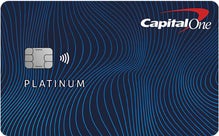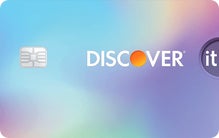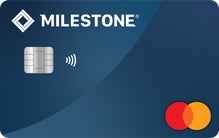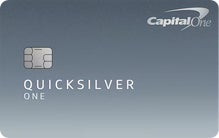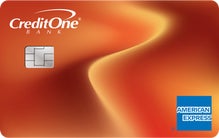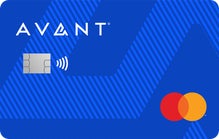Best credit cards for fair/average credit in February 2026
Advertiser Disclosure: Bankrate’s editorial team chooses and recommends the credit cards on this page. Our websites may earn compensation when a customer clicks on a link, when an application is approved, or when an account is opened. However, our recommendations and card ratings are produced independently without influence by advertising partnerships with issuers.
Filter by
Showing 8 results
Best for no annual fee
Intro offer
N/A
Annual fee
$0
Regular APR
28.99% (Variable)
Why you'll like this: Automatic reviews for a possible credit increase and CreditWise access make up for a lack of rewards.
What you should know
Card Details
Intro offer
Cashback Match
Rewards Rate
1% - 5%
Annual fee
$0
Regular APR
16.49% - 25.49% Variable APR
Why you'll like this: This card has one of the best sets of rewards and perks of any student card on the market, for no annual fee.
Reward Details
What you should know
Card Details
Best for high credit limit
Intro offer
N/A
Annual fee
See Terms
Regular APR
See Terms
Why you'll like this: It has a fairly high credit limit without requiring a security deposit, which keeps costs low and gives you more breathing room for purchases.
What you should know
Card Details
Best for flat-rate cash back
Intro offer
N/A
Rewards Rate
1.5% - 5%
Annual fee
$39
Regular APR
28.99% (Variable)
Why you'll like this: You can earn solid flat-rate rewards without juggling rotating or tiered rewards categories.
Reward Details
What you should know
Card Details
Best for travel
on Credit One Bank's secure site
See Rates & FeesIntro offer
N/A
Rewards Rate
1% - 10%
Annual fee
$95
Regular APR
29.74%* Variable
Why you'll like this: It’s one of the few travel cards available for fair credit and includes an exceptional rewards rate on eligible travel purchases.
Reward Details
What you should know:
Card Details
Best for long-term financing
on Upgrade's secure site
See Rates & FeesIntro offer
$200
Rewards Rate
1.5%
Annual fee
$0
Regular APR
14.99% - 29.99%
Why you'll like this: This card’s unique repayment structure is easy to understand, making it a good choice for people who are new to credit.
Reward Details
What you should know
Card Details
Intro offer
N/A
Annual fee
$59
Regular APR
35.99%
Why you'll like this: This card is light on fees and other detriments that make it difficult to build credit with other cards.
What you should know
Card Details
Best for no credit check
Intro offer
N/A
Annual fee
$35
Regular APR
23.89% (variable)
Why you'll like this: This card is one of the more accessible cards on the market with a forgiving, low ongoing APR compared to other cards for fair credit.
Reward Details
What you should know
Card Details
Remove a card to add another to compare
Remove a card to add another to compare
* The information about the (card name) has been collected independently by Bankrate.com. The card details have not been reviewed or approved by the card issuer.
Compare Bankrate's best cards for fair credit
| Card name | Best for | Annual fee | Bankrate review score |
|---|---|---|---|
|
No annual fee |
|
4.2 / 5 Our writers, editors and industry experts score credit cards based on a variety of factors including card features, bonus offers and independent research. Credit card issuers have no say or influence on how we rate cards.
Apply now
on Capital One's secure site
|
|
|
Students |
|
5.0 / 5 Our writers, editors and industry experts score credit cards based on a variety of factors including card features, bonus offers and independent research. Credit card issuers have no say or influence on how we rate cards.
Apply now
on Discover's secure site
|
|
|
High credit limit |
|
2.5 / 5 Our writers, editors and industry experts score credit cards based on a variety of factors including card features, bonus offers and independent research. Credit card issuers have no say or influence on how we rate cards.
Apply now
on Milestone Mastercard's secure site
|
|
|
Flat-rate cash back |
|
4.0 / 5 Our writers, editors and industry experts score credit cards based on a variety of factors including card features, bonus offers and independent research. Credit card issuers have no say or influence on how we rate cards.
Apply now
on Capital One's secure site
|
|
|
Travel |
|
3.2 / 5 Our writers, editors and industry experts score credit cards based on a variety of factors including card features, bonus offers and independent research. Credit card issuers have no say or influence on how we rate cards.
Apply now
on Credit One Bank's secure site
See Rates & Fees
, Terms Apply
|
|
|
Long-term financing |
|
4.2 / 5 Our writers, editors and industry experts score credit cards based on a variety of factors including card features, bonus offers and independent research. Credit card issuers have no say or influence on how we rate cards.
Apply now
on Upgrade's secure site
|
|
|
No penalty APR |
|
2.7 / 5 Our writers, editors and industry experts score credit cards based on a variety of factors including card features, bonus offers and independent research. Credit card issuers have no say or influence on how we rate cards.
Apply now
on Avant's secure site
|
|
|
No credit check |
|
3.1 / 5 Our writers, editors and industry experts score credit cards based on a variety of factors including card features, bonus offers and independent research. Credit card issuers have no say or influence on how we rate cards.
Apply now
on opensky's secure site
|
